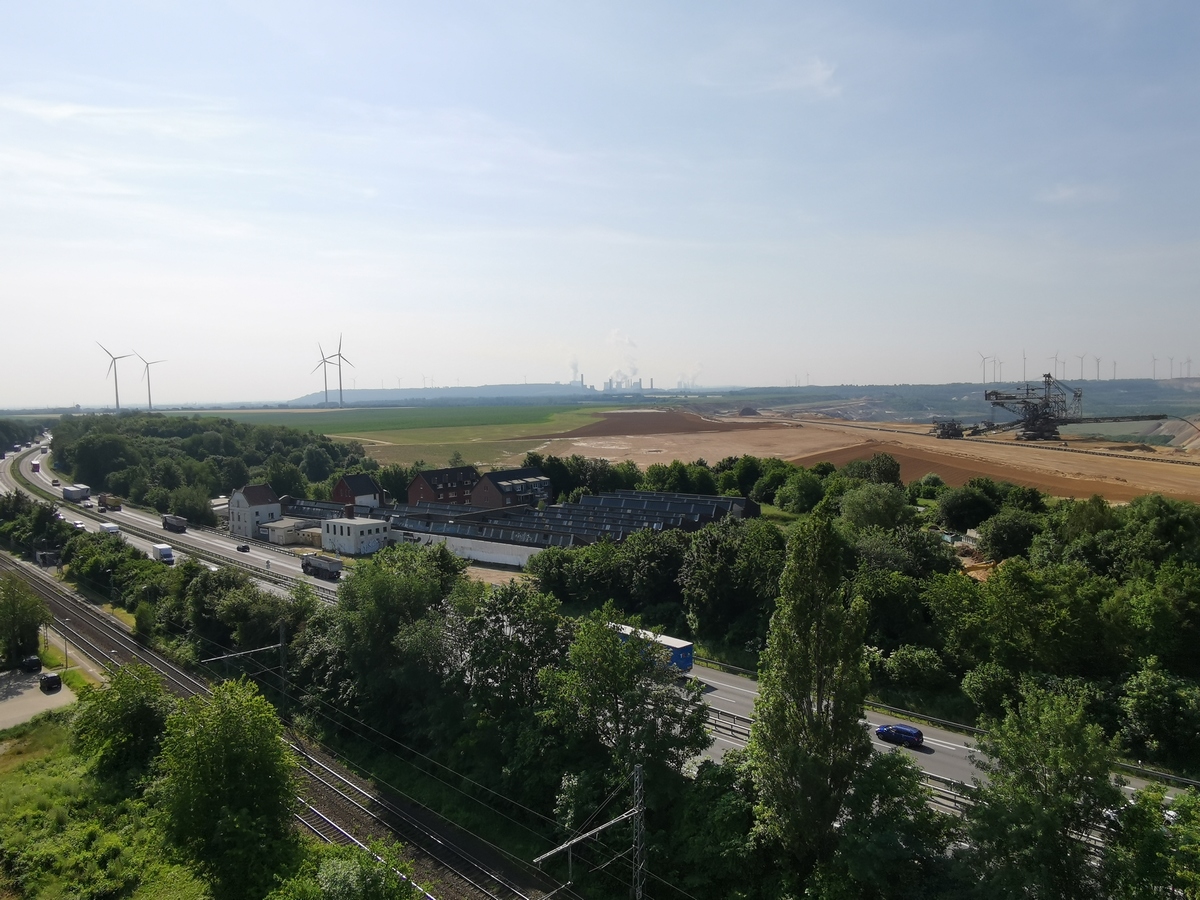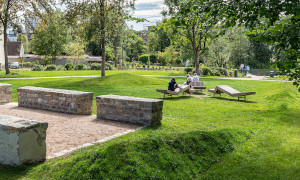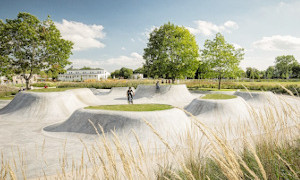Managing landscape change innovatively. bdla advisory board adopts "Dycker Erklärung" (Dyck Declaration)
The "industrial hunger" for fossil fuels has created its own landscapes in Germany over decades. Former natural areas have been degraded to pure energy suppliers. These altered natural landscapes will now be followed by new, post-fossil transformation landscapes. Urgent developments such as the energy and mobility turnaround will inevitably lead to renewed transformation. The tasks ahead are both an opportunity and a mandate to develop livable spaces for people.
Role of landscape architecture in the upcoming transformation
At its annual meeting on April 1, 2022, at Schloss Dyck, Jüchen in the Rhine district of Neuss, the advisory board of the Bund Deutscher Landschaftsarchitekt:innen paid tribute to the pioneering role played by the state of North Rhine-Westphalia in climate adaptation through the first climate adaptation law in Germany, which was passed on July 8, 2021. It supports the associated 15-point offensive of the state government with the goals formulated therein for an inclusive use of space. This package of measures abundantly demonstrates the role of landscape architecture in the upcoming transformation; it rightly highlights the importance of comprehensive climate-oriented planning and development, as well as the protection and expansion of green infrastructure.
Starting from the local and state level, the following measures are to be perpetuated nationwide/statewide:
- develop overarching interdisciplinary visions of new urban and cultural landscapes
- integrate historical and existing landscapes as a quality feature into planning to a greater extent
- consistently take into account current challenges such as climate adaptation, energy transition and new mobility
- Adapt development and utilization scenarios to the transformation requirements in terms of organization, structure and content, thereby initiating a paradigm shift.
- Adapt legal foundations to systemic requirements
- Learn from exemplary transformation spaces and examples.
In order to meet these tasks in a future-oriented manner, a training offensive for the climate landscape is needed - also and especially in Germany's most populous state. The current training capacities are already insufficient to deal fully with the upcoming tasks of landscape architecture, let alone to plan and realize the climate-sensitive transformation of city and country at all levels. We need a nationwide university training offensive, also in order to be able to conduct the necessary scientific research.

Exemplary landscape development in the Rhenish mining area
The landscape and social upheavals of the Rhenish mining area offer a special potential to implement the future tasks of climate adaptation, mobility change and new forms of coexistence in a bundled way. Landscape architects are aware of the complexity and responsibility for the development of high-quality landscapes in their daily practice. The bdla welcomes the official convening of an advisory board for climate adaptation in North Rhine-Westphalia in November 2021 and the inclusion of the Chamber of Architects of NRW in the advisory board.
The Rhenish Revier as a high-performance industrial and scientific region stands exemplary as a real laboratory of an intensively used landscape, whose transformation has just begun. In this context, regional climatic extreme situations such as flooding or drought stress must also be taken into account in planning and development. The bdla considers the practical aid "Climate Change Prevention Strategy for the Cologne/Bonn Region", which was developed by the Cologne/Bonn Region e.V. in 2019, to be exemplary and model for other regions in Germany.
The bdla advocates consensus-building planning for the three post-mining landscapes of Garzweiler, Hambach and Inden. To initiate innovative processes, the instruments of the garden show proved to be particularly suitable in the past. Based on this experience, the association supports the consideration of an international or federal horticultural show. This would give valuable impulses to the development of the future landscapes with all their complex requirements. This task of the century should be based on a broad political consensus at the state level.
The profession of the German landscape architects understands itself in the realization of epochal transformation tasks as an important impulse giver and partner opposite politics and society, will contribute further constructive contributions and take over further responsible positions and tasks on federal state level.
Federation of German Landscape Architects:inside bdla
Wilhelmine-Gemberg-Weg 6, 10179 Berlin
Tel. 030 27 87 15-0, Fax 030 27 87 15-55
- Latitude: 0
- Longitude: 0


